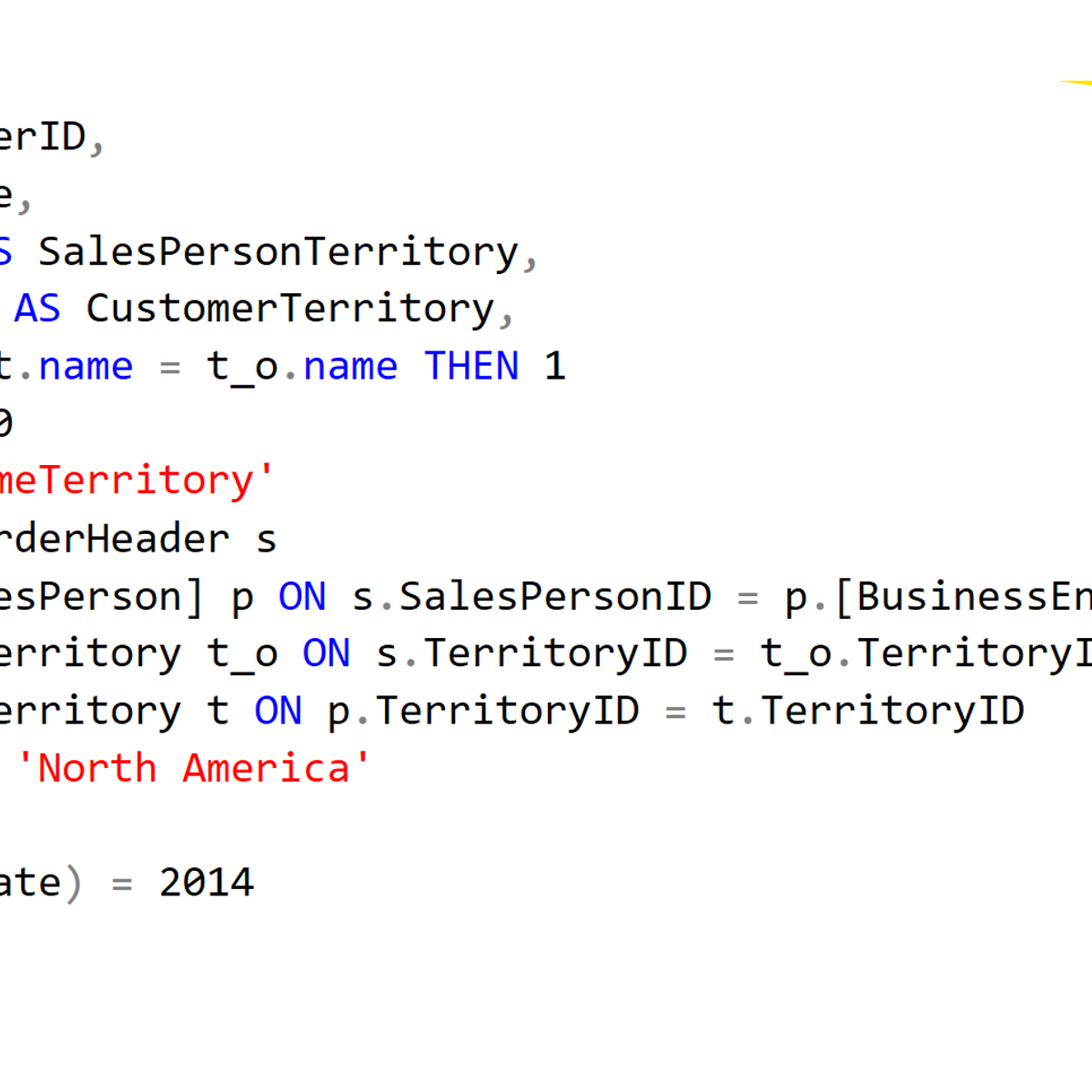
Trier et filtrer les données en SQL
What's inside
Syllabus
Good to know
Save this course
Activities
Refresh relational database concepts
Show steps
Review the fundamentals of relational databases to strengthen your understanding of SQL syntax and data manipulation.
Browse courses on
Relational Databases
Show steps
-
Review the concepts of tables, columns, and primary keys
-
Practice creating and populating tables with sample data
Review SQL syntax and data types
Show steps
Revisit the basic syntax and data types used in SQL to ensure a strong foundation for data manipulation tasks.
Browse courses on
SQL Syntax
Show steps
-
Review the syntax for creating tables and inserting data
-
Understand the different data types available in SQL
Follow tutorials on SQL commands
Show steps
Explore online tutorials to gain hands-on experience with specific SQL commands for filtering and sorting data.
Show steps
-
Search for tutorials on sorting data using ORDER BY
-
Follow a tutorial to filter data using WHERE and AND/OR operators
Four other activities
Expand to see all activities and additional details
Show all seven activities
Participate in a study group for SQL filtering and sorting
Show steps
Engage with peers to discuss concepts, exchange ideas, and work through challenges related to SQL data manipulation.
Browse courses on
Peer Support
Show steps
-
Find or form a study group with fellow course participants
-
Set regular meeting times to discuss course materials and practice exercises
Complete SQL practice exercises
Show steps
Reinforce your understanding by working through practice exercises that challenge you to apply SQL commands for data manipulation.
Browse courses on
Data Filtering
Show steps
-
Find online exercises or use resources provided by the course
-
Attempt to solve the exercises independently
-
Review your solutions and identify areas for improvement
Create a cheat sheet of SQL filter and sort commands
Show steps
Summarize the key SQL commands for filtering and sorting data by creating a concise and accessible cheat sheet.
Show steps
-
Gather the necessary commands from the course materials or online resources
-
Organize the commands in a logical and user-friendly manner
Assist in a database project or internship
Show steps
Gain real-world experience by participating in a database project or internship to apply your skills in a practical setting.
Browse courses on
Data Manipulation
Show steps
-
Identify opportunities for volunteering or internships
-
Apply your knowledge of SQL data manipulation to solve real-world problems
Refresh relational database concepts
Show steps
Review the fundamentals of relational databases to strengthen your understanding of SQL syntax and data manipulation.
Browse courses on
Relational Databases
Show steps
- Review the concepts of tables, columns, and primary keys
- Practice creating and populating tables with sample data
Review SQL syntax and data types
Show steps
Revisit the basic syntax and data types used in SQL to ensure a strong foundation for data manipulation tasks.
Browse courses on
SQL Syntax
Show steps
- Review the syntax for creating tables and inserting data
- Understand the different data types available in SQL
Follow tutorials on SQL commands
Show steps
Explore online tutorials to gain hands-on experience with specific SQL commands for filtering and sorting data.
Show steps
- Search for tutorials on sorting data using ORDER BY
- Follow a tutorial to filter data using WHERE and AND/OR operators
Participate in a study group for SQL filtering and sorting
Show steps
Engage with peers to discuss concepts, exchange ideas, and work through challenges related to SQL data manipulation.
Browse courses on
Peer Support
Show steps
- Find or form a study group with fellow course participants
- Set regular meeting times to discuss course materials and practice exercises
Complete SQL practice exercises
Show steps
Reinforce your understanding by working through practice exercises that challenge you to apply SQL commands for data manipulation.
Browse courses on
Data Filtering
Show steps
- Find online exercises or use resources provided by the course
- Attempt to solve the exercises independently
- Review your solutions and identify areas for improvement
Create a cheat sheet of SQL filter and sort commands
Show steps
Summarize the key SQL commands for filtering and sorting data by creating a concise and accessible cheat sheet.
Show steps
- Gather the necessary commands from the course materials or online resources
- Organize the commands in a logical and user-friendly manner
Assist in a database project or internship
Show steps
Gain real-world experience by participating in a database project or internship to apply your skills in a practical setting.
Browse courses on
Data Manipulation
Show steps
- Identify opportunities for volunteering or internships
- Apply your knowledge of SQL data manipulation to solve real-world problems
Career center
Data Engineer
Data Scientist
Database Administrator
Data Librarian
Data Journalist
Business Intelligence Analyst
Information Architect
Data Analyst
Market Researcher
Actuary
Epidemiologist
User Experience Researcher
Financial Analyst
Statistician
Software Engineer
Reading list
Share
Similar courses
OpenCourser helps millions of learners each year. People visit us to learn workspace skills, ace their exams, and nurture their curiosity.
Our extensive catalog contains over 50,000 courses and twice as many books. Browse by search, by topic, or even by career interests. We'll match you to the right resources quickly.
Find this site helpful? Tell a friend about us.
We're supported by our community of learners. When you purchase or subscribe to courses and programs or purchase books, we may earn a commission from our partners.
Your purchases help us maintain our catalog and keep our servers humming without ads.
Thank you for supporting OpenCourser.



